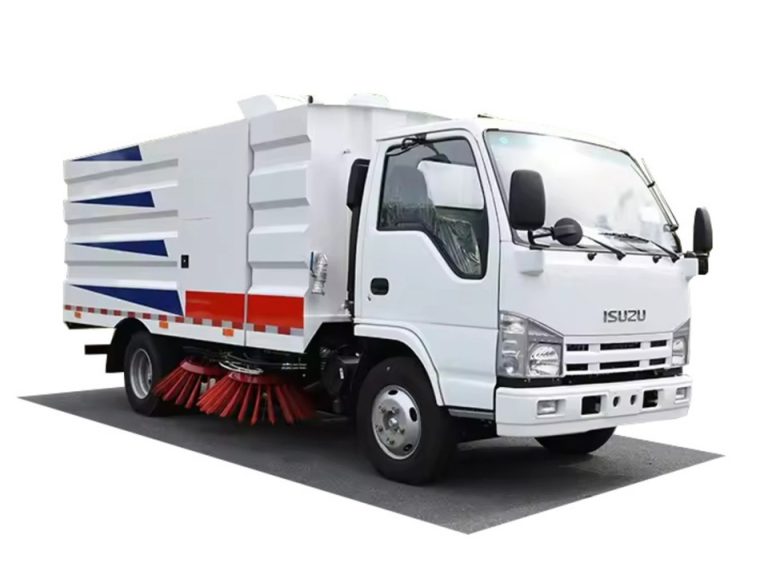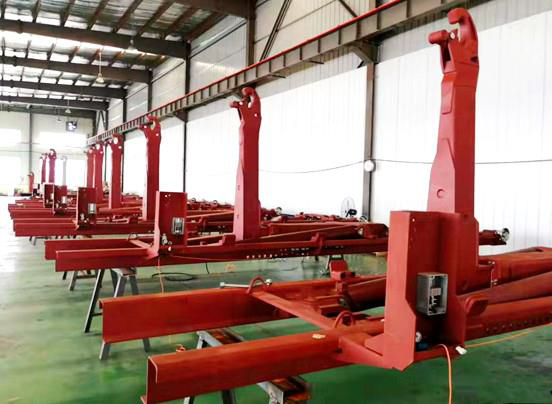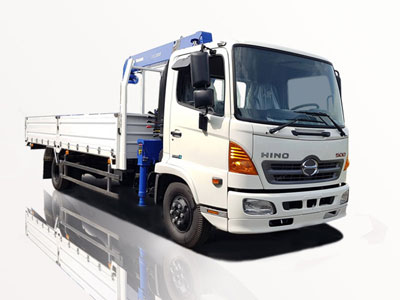When it comes to lifting heavy loads and transporting materials, crane trucks stand out as efficient, reliable, and versatile vehicles. Whether you’re in construction, manufacturing, or any industry that requires heavy lifting, knowing how to buy a crane truck can streamline your operations and improve your productivity. In this article, we will explore the essentials of buying a crane truck, including features to consider, financing options, maintenance tips, and more.
What is a Crane Truck?
A crane truck, often referred to as a truck-mounted crane or hydraulic crane, is a vehicle that combines the functionality of a truck and a mobile crane. It features a crane mounted on a truck chassis, enabling it to transport materials and lift them at construction sites or warehouses. These trucks are especially beneficial for projects that require moving heavy structures or equipment quickly and efficiently.
Key Features to Consider When Buying a Crane Truck
1. Crane Capacity
The crane capacity determines how much weight it can lift safely. Capacity typically ranges from a few tons to more than 100 tons. Assess your typical lifting needs to decide on the appropriate capacity for your operations.
2. Reach and Height
Consider the crane’s reach and height specifications. Longer reach and height provide more versatility in lifting operations. Review the manufacturer’s data to understand the maximum reach and height you can expect.
3. Type of Crane
Different types of cranes are suitable for different needs. Some common types include:
- Telescopic Cranes: These cranes extend to offer greater height and reach.
- Knuckle Boom Cranes: More flexible in motion, making them ideal for tight spaces.
- Articulating Cranes: Able to navigate obstacles, which is useful for construction sites.
4. Truck Specifications
The specifications of the truck itself matter. Important factors include engine power, size, and axle configuration. Ensure the truck can handle the weight of the crane and any additional loads.
5. Safety Features
Safety should be a top priority when buying a crane truck. Look for features such as:
- Emergency shutdown systems
- Load moment indicators (LMIs)
- Anti-collision systems
- Stability controls
6. Manufacturer Reputation
Choose a crane truck from a reputable manufacturer. Research their track record, customer reviews, and the availability of replacement parts. Well-known brands often offer better warranties and support services.
Types of Crane Trucks
1. Standard Crane Trucks
Standard crane trucks are versatile and suitable for various applications. They provide a strong lifting capability and are often used for general construction jobs.
2. Rough Terrain Crane Trucks
These cranes are designed for off-road conditions. They have larger tires and better suspension systems to navigate rough terrains. They are common in construction and logging.
3. All-Terrain Crane Trucks
All-terrain cranes combine the capabilities of rough terrain and standard trucks, offering functionality on both highways and rugged ground.
4. Truck Mounted Crane with Trailer
This type involves a separate trailer for heavier loads, enhancing the lifting capabilities while providing portability.
How to Determine Your Needs
Before purchasing a crane truck, assess your specific needs. Document the types of jobs you’ll be performing, the typical loads you’ll be lifting, and the environments in which the crane will operate.
1. Job Analysis
Conduct a thorough analysis of the jobs you typically handle. Include details on materials, weights, heights, and frequency of lifts. This information will guide you in selecting the right crane specifications.
2. Budget Considerations
Your budget will heavily influence your decision. Consider not only the purchase price but also maintenance, fuel costs, insurance, and any applicable licenses or permits.
3. Consult with Experts
Talking to industry professionals and crane operators can provide valuable insights. They can offer suggestions based on their experiences, helping you make a more informed choice.
Financing Options for Buying a Crane Truck
1. Direct Purchase
Paying outright for a crane truck can save you money in the long run, as you avoid interest payments. However, it requires significant upfront capital.
2. Loans
Many financial institutions offer loans specifically for purchasing heavy equipment. Shop around for competitive interest rates and terms that fit your budget.
3. Leasing
Leasing is a popular option for businesses that do not want the commitment of buying. It allows for flexibility, as you can upgrade to newer models as your needs change.
4. Hire Purchase
This option allows you to pay in installments while still using the crane. Once all payments are complete, the crane becomes yours.
Maintenance and Care for Your Crane Truck
1. Regular Inspections
Conduct routine inspections to ensure all parts are functioning correctly and safely. This helps catch potential issues before they become serious problems.
2. Lubrication and Cleaning
Keep crane components well-lubricated to avoid unnecessary wear and tear. Additionally, regular cleaning helps prevent rust and corrosion.
3. Documentation
Maintain thorough records of all maintenance and repairs. This documentation can be beneficial for resale value and compliance with safety regulations.
4. Training Operators
Ensure that all operators are properly trained and certified to use the crane truck. This not only ensures safety but also prolongs the life of the equipment.
Practical Examples and Tips
1. Choosing the Right Size
If your typical job site is in urban areas with limited space, consider a smaller, more compact crane. Conversely, for larger job sites, a bigger crane may be warranted.
2. Understanding Load Charts
Every crane comes with a load chart that outlines its lifting capabilities. Familiarize yourself with this chart to ensure safe operations.
3. Using Attachments
Attachments such as hooks, lifting slings, and clamshells can enhance your crane’s versatility. Invest in quality attachments to complement your crane truck’s capabilities.
Common Mistakes to Avoid
1. Overloading the Crane
One of the most common mistakes is exceeding the crane’s load capacity. Always refer to the load chart, and never attempt to lift more than what is safe.
2. Ignoring Safety Protocols
Neglecting safety measures can lead to accidents and injuries. Always follow safety protocols and ensure that everyone on-site understands them.
3. Failing to Understand Maintenance Needs
Each crane model has specific maintenance requirements. Failing to adhere to these can lead to costly repairs or accidents.
FAQ Section
1. What is the average cost of a crane truck?
The average cost of a crane truck can vary widely based on its size, capabilities, and manufacturer. Typically, prices can range from $100,000 to over $1 million.
2. How can I find used crane trucks for sale?
You can find used crane trucks on online marketplaces, auction sites, or through equipment dealerships. Always request a history report to check maintenance and accident records.
3. What should I look for when inspecting a used crane truck?
Check for signs of wear and tear, operational history, certification of maintenance, and any damages to the crane boom or truck chassis.
4. Are financing options available for buying crane trucks?
Yes, many manufacturers and financial institutions offer financing options, including loans, leasing, and hire purchase agreements.
5. What type of training is necessary for crane truck operators?
Crane operators should undergo specific training and certification to ensure they understand operational safety, load handling, and equipment maintenance.
6. Can I use a crane truck in rough terrains?
Yes, if you require a vehicle for rough terrains, consider investing in a rough terrain crane truck specifically designed for such conditions.
With the right information, you can confidently purchase a crane truck that meets your needs and enhances your operations. Take the time to research and assess your options to make an informed decision that will serve your business well for years to come.



